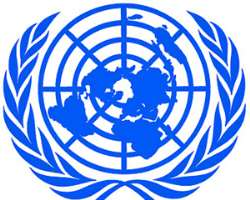TENS OF THOUSANDS IN CHAD NEED LIFE-SAVING ASSISTANCE AFTER FLEEING VIOLENCE IN CENTRAL AFRICAN REPUBLIC

NDJAMENA, Chad, March 4, 2014/African Press Organization (APO)/ -- Tens of thousands of people who have fled from violence in the Central African Republic (CAR) to neighbouring Chad remain in dire need of humanitarian assistance.
“These vulnerable people continue to suffer after surviving the carnage we are witnessing in CAR. We urgently need more resources to help them,” said Thomas Gurtner, Humanitarian Coordinator in Chad. “The world needs to take notice of this human tragedy.”
Since the last wave of violence in CAR began in December last year, the Government of Chad and the United Nations have registered more than 80,000 people arriving from CAR, and their numbers continue to increase. While some 8,000 people have been identified as refugees, the majority of the arrivals are Chadian families who have lived in CAR for several generations. Predominantly women and children, they fled their homes and villages with few or no belongings, seeking refuge from looting, murder and rape.
“Many are injured, traumatized, ill or malnourished. Almost 1,000 children are unaccompanied or separated from their family,” said Mr. Gurtner. “They all need protection support and depend on provision of shelter, clean water, food distribution and health care to survive.”
Transit sites in the capital N'Djamena and in southern Chad are overcrowded, several sheltering more than 10,000 people, and basic services are inadequate. The living conditions are dire with little or no drinking water, overflowing latrines, and risks of outbreaks of diseases such as cholera.
“The Government of Chad, UN agencies and humanitarian partners are doing all they can. But all actors are stretched to their limits and lack resources,” said Mr. Gurtner. “Only more funding will allow us to cover the most urgent humanitarian needs.”
The UN and humanitarian partners have developed a six-month Emergency Response Plan appealing for US$33 million to respond to the immediate needs of an estimated 150,000 people. To date, only US$6 million have been mobilized including US$4.3 million from the United Nations Central Emergency Response Fund (CERF).
